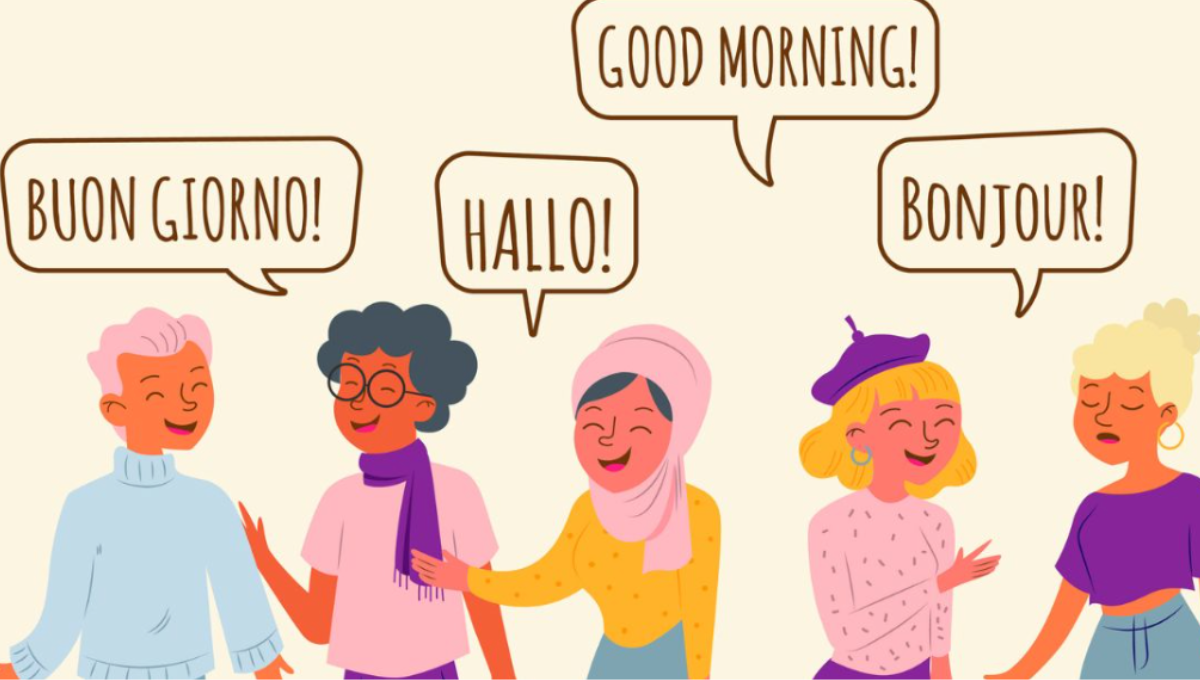In Spanish culture, birthday celebrations are just as significant as they are in English. Spanish people love to celebrate birthdays. From wishing someone a happy birthday in Spanish to singing birthday songs for loved ones, try living the best out of every moment.
Everything you require to shine with your command of the Spanish language in a birthday situation will be covered in this post. Let’s look at how to say “happy birthday” in Spanish and the associated vocabulary.
How to say happy birthday in Spanish
Below are the two most common phrases that are used to say ‘happy birthday’ in Spanish.
- ¡Feliz cumpleaños! (Happy birthday!)
This is the most common way of wishing someone a happy birthday.
- ¡Feliz cumple! (Happy birthday!)
Cumple is the short version of cumpleaños. This is also very commonly used, although it’s more informal than the first one.
Notice that both phrases contain some form of the verb cumplir (to fulfill) + años. This translates literally to “to complete years.” So when you wish someone feliz cumpleaños, you are wishing them a “happy completion of this year!” You can hold basic Spanish conversation using these common phrases.

Learn Spanish on italki
Join the global community of language learners today! Sign up for italki and start improving your language skills with native-speaking teachers from around the world.
Create an italki account
Basic birthday vocabulary
The below table contains basic vocabulary related to birthdays along with examples. You can note them down and use them once you visit a birthday party next time.
| English | Spanish | English |
| Birthday party | La fiesta de cumpleaños | Me ha invitado a su fiesta de cumpleaños.(He has invited me to his birthday party.) |
| Wishes | Los deseos | Que se cumplan todos tus deseos.(May all your wishes come true.) |
| Balloon | El globo | Tenemos que comprar más globos.(We need to buy more balloons.) |
| Cake | El pastel/la tarta/la torta. | Me encanta este pastel de chocolate.(I love this chocolate cake) |
| Gifts | Los regalos/Los presentes | Ella recibió muchos regalos.(She got a lot of presents.) |
| Confetti | El confeti | ¿Has traído el confeti?(Have you bought the confetti?) |
| To celebrate | celebrar | Vamos a celebrar el viernes.(We are going to celebrate on Friday.) |
| To give a present | Dar un regalo | ¿Le has dado el regalo a Pablo ya?(Have you given the present to Pablo yet?) |
| Birthday song | La canción de cumpleaños | Esta es mi canción de cumpleaños favorita.(This is my favorite birthday song.) |
| Piñata | La piñata | En la fiesta de cumpleaños de María había una piñata.(There was a piñata at Maria’s birthday party.) |
| Guests | Los invatados | Hay al menos 50 invitados.(There are at least 50 guests.) |
| Surprise party | La fiesta sorpresa | Le va a encantar la fiesta sorpresa.(He’s going to love the surprise party.) |
| To make a wish | Pedir un deseo | ¡Pide un deseo!(Make a wish!) |
| Candles | Las velas | ¿Cuántas velas hay?(How many candles are there?) |
Phrases related to birthdays
| English | Spanish |
| Congratulations! | ¡Felicidades/Felicitaciones! |
| How old are you turning? | ¿Cuántos años cumples? |
| When is your birthday? | ¿Cuándo es tu cumpleaños? |
| What do you want for your birthday? | ¿Qué quieres para tu cumpleaños? |
| What are you going to do for your birthday? | ¿Qué vas a hacer por tu cumpleaños? |
| May you celebrate many more birthdays! | ¡Que cumplas muchos más! |
| May you have a good day! | Que tengas un feliz/lindo día. |
| Enjoy your day. | Disfruta de tu día. |
| May all your dreams/wishes come true! | ¡Que se cumplan todos tus sueños/deseos! |
| Have a good time! | ¡Pásalo/la muy bien! |
If you want to study Spanish, get enrolled with italki. Here, the Spanish tutor online will train you in spoken and written Spanish. You can also access a free trial lesson before enrollment. With the help of one-on-one lessons, you can gain the knowledge and confidence required to speak Spanish. Book yourself today!

Find Your Perfect Teacher
At italki, you can find your Spanish tutor from all qualified and experienced teachers. Now experience the excellent language learning journey!
Book a trial lesson
Birthday songs
The tradition of singing happy birthday is widespread across many cultures. There are many different birthday songs available in Spanish.
“Cumpleaños Feliz” (Happy Birthday to You)
Here is the traditional “Happy Birthday to You” song (“Cumpleaños Feliz” song), which is very popular in Spain:
¡Cumpleaños feliz! (Happy birthday!)
¡Cumpleaños feliz! (Happy birthday!)
Te deseamos todos, (We all wish you,)
¡Cumpleaños feliz! (Happy birthday!)
¡Cumpleaños feliz! (Happy birthday!)
¡Te deseamos a ti! (We wish to you!)
¡Que los cumplas en tu día! (May you celebrate on your day!)
¡Que los cumplas feliz! (May you celebrate happily!)
“Feliz, Feliz En Tu Día” (Happy, Happy in Your Day)
This song was made very popular by Spain’s favorite clowns Gaby, Miliki and Fofito:
¡Feliz, feliz en tu día! (Happy, happy in your day!)
¡Amiguito, que Dios te bendiga! (Little friend, may God bless you!)
Que reine la paz en tu día, (May peace rule your day,)
¡Y que cumplas muchos más! (And may you celebrate many more [birthdays]!)
Memorizing these songs can also help you learn Spanish accents. Listen to them while enjoying and they will serve as a tool to increase your Spanish vocabulary.
“Las Mañanitas” (The Little Mornings)
This is a very popular song mainly sung in Mexico:
Estas son las mañanitas (These are the morning serenades)
Que cantaba el rey David. (that King David used to sing.)
Hoy, por ser tu cumpleaños, (Today, since it’s your birthday,)
Te las cantamos a ti. (We sing them to you.)
Birthday traditions
Given so many people speak Spanish, it makes sense that there is a wide range of traditions. We have listed a few of the most well-liked birthday customs from various cultures:
Argentina
One of the customs in Argentina is to pull a child’s earlobe once for each year that they have reached. In addition, a sizable Quinceanera celebration is held when a girl turns 15.

Chile
In Chile, pineapple cake is a common sight at birthday celebrations. The birthday child or girl frequently gets frosting on their face as they blow out the candles.

El Salvador
At a birthday celebration in El Salvador, you might find a cake, but you’re almost certain to find tamales, one of the tastiest foods on earth!
Honduras
In Honduras, people are egged on their birthdays. Guests throw flour and water at the person after smashing an egg over their head.
Mexico
In Mexico, a birthday celebration wouldn’t be complete without a piñata containing sweets. Children are traditionally blindfolded and given a stick or bat to hit the piñata with until it explodes and releases all the candy for people to pick up.

Peru
At birthday parties, Peruvians frequently give gifts—or, rather, souvenirs—to their guests. A goody bag and a pin created in recognition of the occasion are the two most typical presents.
Spain
The fact that most Spaniards believe they have two birthdays—their actual birthday and the day of their patron saint—is one of the country’s most intriguing birthday traditions. Some people might have to celebrate their birthday twice, or maybe just on the day of their patron saint.

Venezuela
On your birthday, locals will make every effort to bury your face in the birthday cake. You’d better not try to resist because it’s a lucky charm.
Frequently asked questions
Q. What do you write on a Spanish birthday card?
A. Feliz cumpleaños, ¡que la pases bien! Happy birthday, I hope you enjoy your day! Feliz cumpleaños, ¡espero que disfrutes tu día!
Q. How do you express joy in Spanish?
A. Usually, to describe happiness, you will hear contento / contenta (“content”). Or, you could say “delighted” in Spanish with encantado / encantada. And to feel “excited” in Spanish, it’s emocionado / emocionada.
Q. Do Spanish people have 2 birthdays?
A. Most Spanish people celebrate two birthdays, especially if an individual is named after a saint. The first celebration is on the actual day of birth, and the second one is on Saint’s Day.
Conclusion
You now understand how to celebrate birthdays in Spanish, from the basic vocabulary to the songs and customs. Learning these phrases also takes you one step closer to native speakers. It enables you to make new friends and retain the existing ones.
Several other phrases such as good luck in Spanish can also help you cheer people up. Practice these phrases in your daily conversations and that is how you will improve your Spanish pronunciation.
Want to learn a language at italki?
Here are the best resources for you!




















